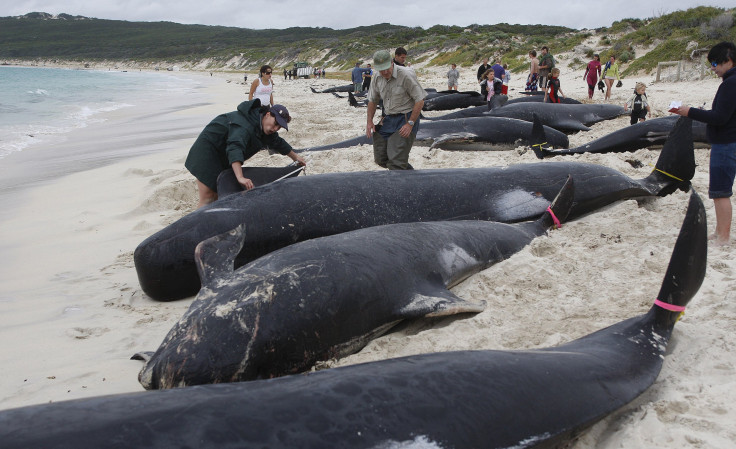Solar Storms Causing Migrating Whales To Get Lost And Stranded, Scientists Reveal

KEY POINTS
- Scientists discovered that solar storms can affect the migration of whales
- Disruptions in the Earth's magnetic field can affect the navigation of whales
- High-level radio frequencies can cause gray whales to get lost and stranded
Scientists have discovered the link between solar storms that hit Earth and the migratory behavior of certain types of whales. According to their findings, solar storms can cause the whales to get lost or even stranded during migration seasons.
The scientists presented their findings during the recent Integrative and Comparative Biology meeting held in Austin, Texas.
For their study, the scientists focused on migratory whales such as gray whales because they most likely use magnetoreception for navigation. This is a natural characteristic that allows certain animals to detect the Earth’s magnetic field.
Every year, gray whales swim from Baja California in Mexico to the cool waters of the Bering and Chukchi seas near Alaska. This occurs from March to June. During their voyage, one or a couple of whales occasionally get lost and stranded along the way.
Although veering away from their intended paths can be caused by a number of factors such as the presence of predators, scientists believe that it is also possible that whales get lost due to disruptions in the Earth’s magnetic field.
Scientists noted that these disruptions can be caused by the sunspots and high levels of radio waves emitted by solar storms on Earth.
“There's a huge chunk in the radio frequency (RF) wave range that does make it all the way to the Earth,” Jesse Granger, the lead author of the study and a conservation biophysicist, said in a statement according to Live Science. “And, it's been shown in several species that RF noise can disrupt a magnetic orientation ability.”
To test their findings, the scientists analyzed the data on gray whale stranding in the West Coast during migration seasons from 1985 to 2018. The data showed that even healthy and young gray whales were susceptible to getting lost or stranded.
After cross-referencing the data with records of solar storms on Earth, the scientists discovered that a large number of gray whales tend to get lost when there were high levels of radio frequencies and sunspots hitting the planet.
“Whales are stranding a lot more often when the sun is doing crazy stuff,” Granger said.
The scientists plan to carry out follow-up studies to see if the same phenomenon can be observed in other migratory species.
© Copyright IBTimes 2025. All rights reserved.





















